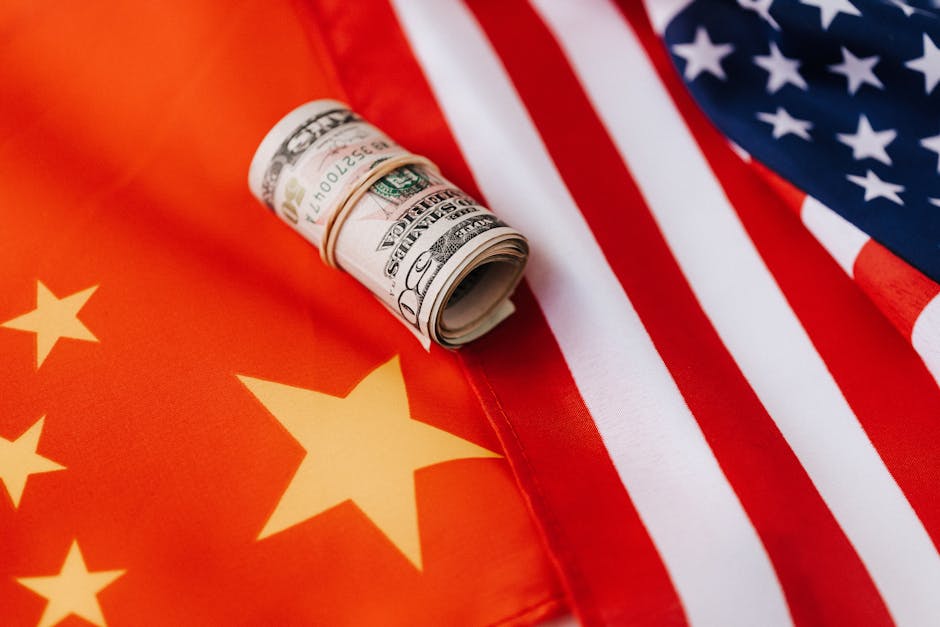Trade Policies and Their Effects on International Relations
Trade policies play a pivotal role in shaping the interactions between nations, influencing economic growth, political relationships, and social dynamics. These policies govern how goods, services, and capital flow across borders, determining tariffs, quotas, and regulations that impact both domestic economies and global partnerships. As countries strive to balance their own interests with international cooperation, trade policies often become a focal point for negotiations, disputes, and alliances. Understanding their intricacies provides insight into how nations navigate complex economic landscapes and foster relationships on the global stage.

The Fundamentals of Trade Policies
Trade policies are essentially frameworks set by governments to regulate international trade. They encompass a wide range of measures, including tariffs (taxes on imports), subsidies (financial support to domestic industries), and trade agreements aimed at reducing barriers between nations. Protectionism and free trade are two opposing approaches within this domain. While protectionism seeks to shield domestic industries from foreign competition through tariffs or quotas, free trade promotes minimal restrictions to encourage international commerce.
For instance, the North American Free Trade Agreement (NAFTA), now replaced by the United States-Mexico-Canada Agreement (USMCA), illustrates how trade agreements can foster economic collaboration while addressing specific concerns of the involved parties. Such policies not only affect economic outcomes but also reflect broader geopolitical strategies.
Historically, trade policies have been instrumental in nation-building efforts. The post-World War II establishment of institutions like the World Trade Organization (WTO) highlights their role in stabilizing global economies and reducing the likelihood of conflict by promoting interdependence among nations.
Economic Impacts of Trade Policies
The economic implications of trade policies are profound, influencing industries, employment rates, and consumer prices. Protective measures such as tariffs can safeguard local jobs but may also lead to higher costs for consumers due to limited competition. Conversely, free trade agreements can lower prices and expand market access but might expose domestic industries to intense foreign competition.
A notable example is China’s entry into the WTO in 2001. This integration significantly boosted global trade volumes and allowed countries to access cheaper goods. It also led to debates over job losses in certain sectors within developed economies. Policymakers often face the challenge of balancing these competing priorities while addressing public concerns.
Furthermore, trade policies can influence currency valuation. Tariffs or export restrictions can alter demand for a country’s currency on international markets, impacting exchange rates and potentially leading to broader economic repercussions.
Political Dimensions and International Relations
Trade policies are not merely economic tools; they are also political instruments wielded to assert national interests or strengthen alliances. For instance, sanctions (a form of restrictive trade policy) are used as leverage against countries deemed to violate international norms or pose threats to security.
The United States’ ongoing trade tensions with China exemplify how trade policies intersect with political agendas. Tariffs imposed on Chinese goods were justified as measures against intellectual property theft and unfair trading practices. They also reflect broader strategic competition between the two superpowers.
On the other hand, cooperative trade agreements can serve as diplomatic bridges. The European Union (EU), for example, utilizes its single market structure to create economic unity among member states while fostering collective bargaining power on the global stage.
Social and Environmental Considerations
Modern trade policies increasingly incorporate social and environmental clauses aimed at promoting equitable growth and sustainable practices. These provisions address issues such as labor rights violations, carbon emissions, and resource exploitation.
The Comprehensive and Progressive Agreement for Trans-Pacific Partnership (CPTPP) includes standards for environmental protection and workers' rights across participating nations. By linking economic incentives with ethical practices, such agreements strive to ensure that globalization benefits a wider array of stakeholders.
Nonetheless, critics argue that enforcement mechanisms for these clauses often lack teeth. For example, while many agreements outline ambitious goals for reducing carbon footprints or combating child labor, practical implementation remains inconsistent due to varying national capacities and priorities.
Challenges in Formulating Effective Trade Policies
Creating effective trade policies involves navigating numerous challenges such as balancing domestic interests with international commitments. Governments must consider diverse stakeholder perspectives ranging from industry leaders to labor unions while negotiating terms that benefit their economies without alienating key partners.
- Divergent Interests: Different sectors within an economy may have conflicting priorities regarding trade openness versus protectionism.
- Geopolitical Dynamics: Shifting alliances or regional conflicts can complicate negotiations or disrupt established agreements.
- Technological Disruptions: Advances in automation or digital services require policymakers to adapt traditional frameworks for regulating goods-centric trade models.
The Role of Multilateral Organizations
Multilateral organizations like the WTO play a central role in mediating disputes arising from conflicting national policies while promoting standardized rules governing global commerce. They provide forums where countries can negotiate agreements or seek arbitration when disagreements escalate into formal disputes.
A case worth noting is Brazil's challenge against U.S cotton subsidies under WTO rules during early 2000s, a dispute resolved through negotiated settlements illustrating how multilateral mechanisms facilitate fair outcomes despite contentious scenarios (wto.org).
However recent trends toward unilateralism (where nations prioritize bilateral deals over multilateral frameworks) pose challenges for these institutions’ relevance amid evolving geopolitical realities .
The intricate web of trade policies underscores their dual function as economic regulators and political tools shaping international relations . From fostering cooperation through mutually beneficial agreements ,to asserting dominance via restrictive measures ,these frameworks influence every aspect society-from household budgets,to foreign policy strategies .
This article was generated by AI